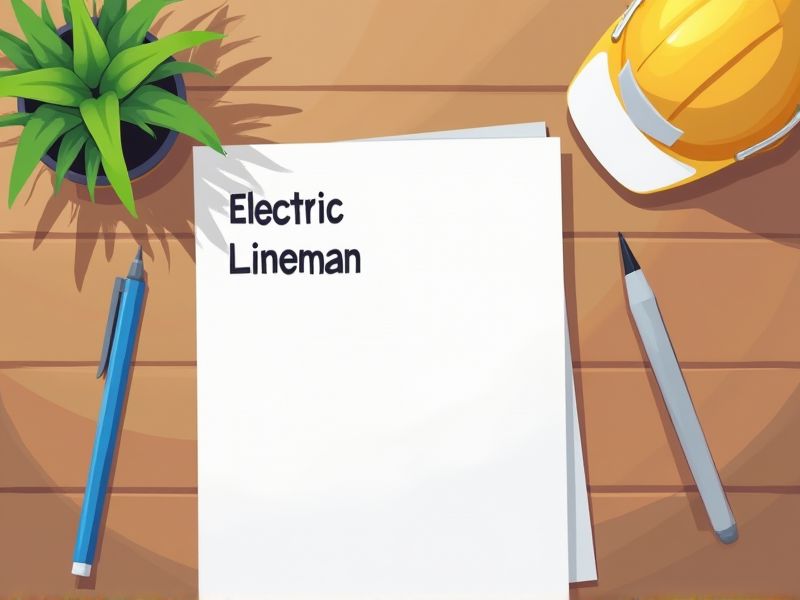
Electric Utility Linemen work with high-voltage power lines and complex electrical systems, making safety a paramount concern. Proper certifications ensure that linemen have the necessary skills and knowledge to handle dangerous tasks efficiently and minimize risks. Certifications also ensure compliance with industry standards and regulations, enhancing the reliability of the power grid. Some essential certifications required for Electric Utility Linemen include the following.
OSHA 10 Hour Construction Safety Certification
Electric utility linemen often work in environments with high voltage and hazardous conditions, so the OSHA 10 Hour Construction Safety Certification provides them with essential knowledge of safety protocols to minimize risks. The certification educates them on recognizing and preventing safety hazards, which helps reduce injury rates and improve job site safety. OSHA regulations require adherence to specific safety standards, and having the certification ensures linemen are compliant with these rules. Employers also benefit as certified workers contribute to fewer workplace accidents, which can lower insurance costs and improve overall operational efficiency.
OSHA 30 Hour Construction Safety Certification
Electric utility linemen face high-risk tasks involving electrical hazards and elevated work positions, necessitating OSHA 30 Hour Construction Safety Certification to ensure comprehensive safety knowledge. The certification provides in-depth understanding of safety protocols, crucial for preventing electrical accidents and injuries. It educates linemen on hazard recognition and compliance with safety regulations, essential components in minimizing workplace risks. Employers often require this certification as a benchmark for safety competence, directly impacting job eligibility and career advancement for linemen.
CPR and First Aid Certification
Electric utility linemen work in environments with high voltage and potential electrical hazards, so CPR and First Aid certification equips them to respond to emergencies quickly. Incidents like falls, electrical shocks, or burns can occur, and having proper training minimizes injury impact. Certifications prepare linemen to stabilize colleagues in life-threatening situations until professional medical aid arrives. Safety regulations often mandate this training, ensuring linemen comply with occupational health standards.
NFPA 70E Electrical Safety Certification
NFPA 70E Electrical Safety Certification provides electric utility linemen with critical knowledge to prevent electrical hazards, significantly reducing the likelihood of accidents. Compliance with NFPA 70E is often required by employers and regulatory bodies, ensuring that linemen meet industry safety standards. Certification in NFPA 70E enables linemen to understand arc flash risks, enhancing their ability to work safely around energized equipment. Possessing this certification demonstrates a commitment to safety, increasing trust and reliability between the lineman, their employer, and the public.
Working at Heights Certification
Working at heights certification is necessary for electric utility linemen to ensure they possess the proper skills and knowledge to safely perform tasks in elevated work environments. This certification helps reduce the risk of falls and related accidents, which are common hazards in the utility sector. It also ensures compliance with industry safety regulations, preventing legal and financial repercussions for both workers and employers. Continuous certification training encourages a culture of safety, improving overall job site efficiency and morale.
Arc Flash Awareness Training Certification
Arc Flash Awareness Training Certification is essential for electric utility linemen to understand the potential hazards associated with high-energy arc flash incidents. Without proper training, the risk of serious injuries or fatalities increases significantly when working with live electrical equipment. The certification equips linemen with critical knowledge on safety measures, personal protective equipment, and emergency response techniques. Compliance with industry standards and regulations through certification ensures a safer work environment and reduces liability for employers.
Confined Space Entry Certification
Confined Space Entry Certification is mandated for electric utility linemen because it ensures they understand and can mitigate the hazards present in enclosed spaces, such as manholes and vaults. The certification process educates linemen about toxic atmospheres, limited access points, and potential for engulfment, essential for safety compliance. Training in confined space entry equips these workers with the necessary skills to conduct risk assessments and implement proper safety measures. This certification aligns with regulations from safety authorities, minimizing accidents and enhancing operational safety standards.
Fall Protection Training Certification
Electric utility linemen face significant risks of falls due to the nature of their work at heights, making fall protection training certification essential for their safety. The certification ensures linemen are equipped with the knowledge and skills to properly use protective equipment, reducing injury incidents. Compliance with OSHA regulations mandates that employees working at elevations must undergo specific training, necessitating certified instruction for linemen. Proper training fosters a safety-first culture, which can lead to decreased liability and enhanced productivity for utility companies.
Hot Work Permit Safety Certification
Hot Work Permit Safety Certification is crucial for electric utility linemen because it helps ensure adherence to protocols when working near flammable materials, reducing the risk of accidents. Certification provides linemen with necessary training on how to manage and control heat sources safely. It mandates rigorous inspection procedures, which minimizes potential hazards associated with equipment and environmental conditions. Increased awareness and structured safety measures from the certification can lead to fewer worksite incidents and improved overall safety compliance.
Line Clearance & Safe Work Practices Certification
Line Clearance & Safe Work Practices Certification is essential to minimize the risk of electrical hazards, which significantly reduces accidents for electric utility linemen. This certification ensures that linemen are well-versed in emergency response procedures, enhancing their ability to handle unforeseen situations safely. Proper training in safe work practices leads to improved operational efficiency, as linemen can perform tasks with confidence and accuracy. Regulatory compliance is legally mandated, and certification ensures that the workforce adheres to industry standards, avoiding legal and financial penalties.
Summary
When you invest in certifications as an Electric Utility Lineman, your career prospects can significantly improve. Certification can elevate your credibility, which employers often view as a mark of competence and specialized knowledge. Enhanced skills through certification typically lead to better job performance, potentially increasing your chances of promotions and salary hikes. Employers benefit from reduced risks and improved safety, as certified linemen generally adhere to the latest safety standards and practices.
